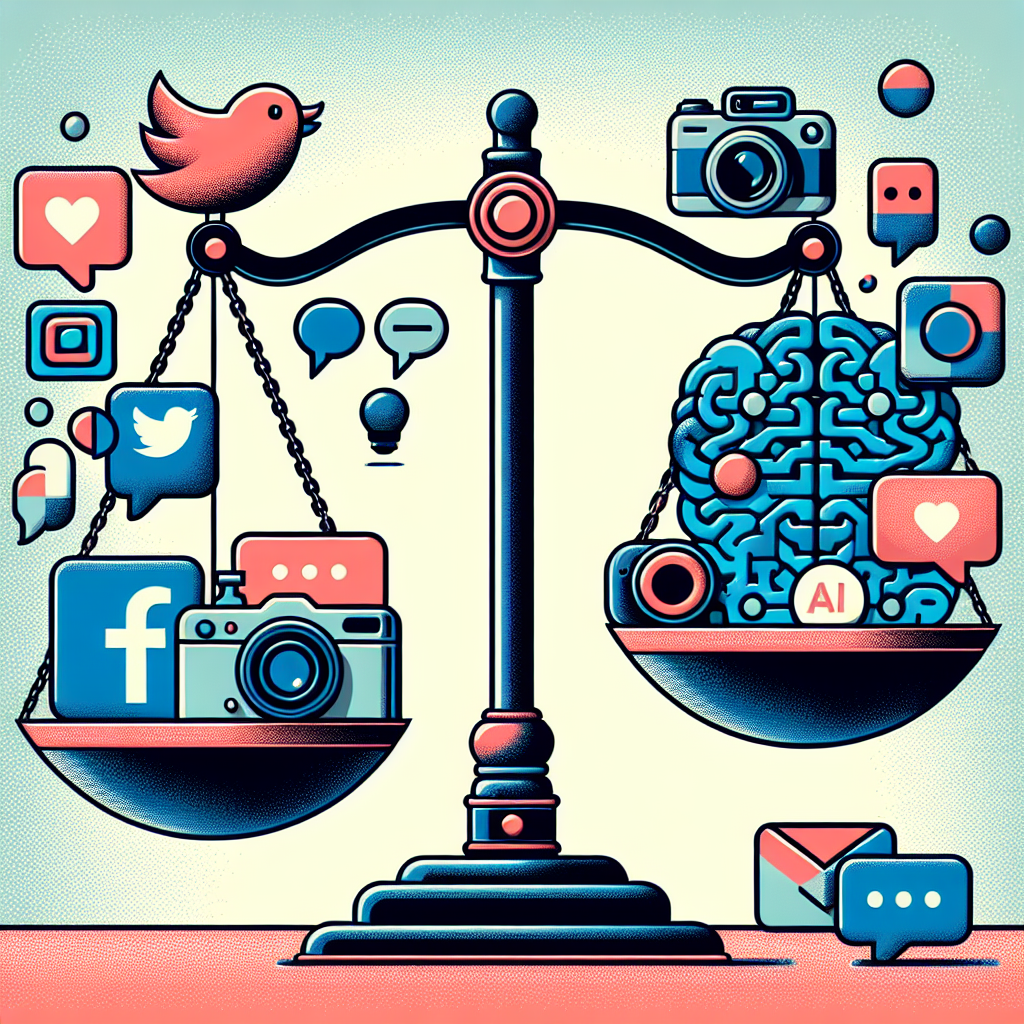Artificial Intelligence (AI) has become an integral part of our daily lives, from virtual assistants like Siri and Alexa to recommendation algorithms on platforms like Netflix and Amazon. One area where AI is increasingly being utilized is in social media platforms, where algorithms are used to curate content, target advertisements, and even moderate user behavior. However, as AI becomes more prevalent in social media, there are growing concerns about the ethical implications of its use.
The Ethical Considerations of AI Platforms in Social Media
One of the primary ethical concerns surrounding AI platforms in social media is the issue of bias. AI algorithms are designed to learn from data, which means they can pick up on biases present in the data they are trained on. This can lead to algorithms that discriminate against certain groups or perpetuate stereotypes. For example, a study by researchers at the University of Washington found that AI systems used by social media platforms were more likely to show ads for high-paying jobs to men rather than women. This gender bias in advertising algorithms can have real-world implications, perpetuating existing inequalities in the workforce.
Another ethical consideration is the issue of privacy. AI algorithms used by social media platforms often rely on collecting and analyzing vast amounts of user data in order to make predictions and recommendations. This can raise concerns about the security and privacy of user information, especially in light of recent data breaches and scandals involving tech companies like Facebook. Users may not be aware of the extent to which their data is being collected and used by AI algorithms, leading to concerns about consent and transparency.
There are also concerns about the potential for AI algorithms to manipulate or control user behavior. Social media platforms already use algorithms to curate content and show users personalized feeds, but there is a fear that AI could be used to manipulate users into engaging with certain types of content or even influence their opinions and beliefs. This raises questions about the ethical responsibility of social media platforms to ensure that AI is being used in a way that is transparent and respects users’ autonomy.
Finally, there is the issue of accountability. AI algorithms can be complex and opaque, making it difficult to understand how they make decisions or why they produce certain outcomes. This lack of transparency can make it challenging to hold social media platforms accountable for the actions of their AI systems. If an algorithm makes a biased decision or causes harm to users, who should be held responsible? This question of accountability is a key ethical consideration when it comes to AI platforms in social media.
FAQs:
Q: How can social media platforms address bias in their AI algorithms?
A: Social media platforms can take steps to address bias in their AI algorithms by diversifying the data used to train the algorithms, implementing bias detection tools, and conducting regular audits to identify and correct biases in the algorithms.
Q: What can users do to protect their privacy on social media platforms?
A: Users can protect their privacy on social media platforms by reviewing and adjusting their privacy settings, being cautious about the information they share online, and using tools like ad blockers and browser extensions to limit tracking and data collection.
Q: How can social media platforms ensure transparency and accountability in their use of AI?
A: Social media platforms can ensure transparency and accountability in their use of AI by being open about how their algorithms work, providing explanations for algorithmic decisions, and establishing clear guidelines for the ethical use of AI.
In conclusion, the ethical considerations of AI platforms in social media are complex and multifaceted. As AI continues to play a growing role in shaping our online experiences, it is essential for social media platforms to prioritize ethical considerations in the development and deployment of AI algorithms. By addressing issues of bias, privacy, manipulation, and accountability, social media platforms can ensure that AI is used in a way that is fair, transparent, and respectful of users’ rights and autonomy.

